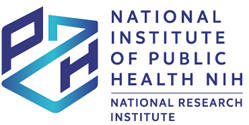ABSTRACT
Background. Breast cancer is the first in the structure of the incidence of neoplastic diseases in women, with the number of affected individuals becoming higher every year. The risk of breast cancer is influenced not only by genetic factors, but also by the lifestyle. Proper dietary habits, a high level of physical activity and normal body weight not only reduce the risk of developing a primary neoplastic lesion, but also a recurrence. In 2007 the World Cancer Research Fund (WCRF) and American Institute for Cancer Research (AICR) published their recommendations concerning lifestyle in the prophylaxis of neoplasms.
Objective. The aim of the study was to assess whether the adherence to WCRF/AICR recommendations influenced the risk of developing breast cancer in women.
Materials and methods. A case control study included 108 women aged over 50 with a history of breast cancer. The study group was divided into two subgroups: women who completed oncological treatment and experienced no recurrences for at least 5 years (group I, n=82) and women who had a recurrence (group II, n=26). The control group included women with no history of breast cancer (n=74). The adherence of lifestyle was assessed by assigning points for 8 WCRF/AICR recommendations. The results were compared in the study and control groups, both in all participants and separately in those who declared no changes in dietary habits after being diagnosed with breast cancer.
Results. The adherence of lifestyle to WCRF/AICR recommendations was significantly lower in the group of women with a history of cancer compared to the control group. It was reported both in the study group as a whole (5.5 ± 1.34 vs 6.4 ± 1.48 points) and in those who declared no changes in dietary habits after being diagnosed with breast cancer (5.3 ± 1.24 vs 6.6 ± 1.38 points). The differences in the lifestyles of the participants with breast cancer and those in the control group were associated predominantly with the adherence to recommendations concerning appropriate physical activity, avoiding the consumption of sweetened drinks and limiting the consumption of processed and red meat.
Conclusions. The results of the study confirmed the benefits of complying with WCRF/AICR recommendations in the prevention of breast cancer.
STRESZCZENIE
Wprowadzenie. Nowotwór piersi zajmuje pierwsze miejsce w strukturze zachorowań na nowotwory u kobiet, a z roku na rok liczba chorujących kobiet rośnie. Na ryzyko raka piersi wpływ mają nie tylko czynniki genetyczne, ale także styl życia. Prawidłowy sposób odżywiania, wysoki poziom aktywności fizycznej i utrzymywanie prawidłowej masy ciała zmniejszają ryzyko nie tylko pojawienia się pierwotnej zmiany nowotworowej, ale także wznowy. W roku 2007 Światowy Fundusz Badań nad Rakiem (WCRF) oraz Amerykański Instytut Badań nad Rakiem (AICR) wydały zalecenia dotyczące stylu życia w profilaktyce nowotworów.
Cel. Celem badań była ocena czy stosowanie zaleceń WCRF/AICR ma wpływ na ryzyko powstania raka piersi u kobiet.
Materiał i metody. Badanie kliniczno-kontrolne objęło 108 kobiet po 50. roku życia z rakiem sutka w wywiadzie. Badane podzielono na dwie grupy: kobiety, które zakończyły leczenie onkologiczne oraz pozostawały bez wznowy przez minimum 5 lat (grupa I, n=82) i kobiety, u których wystąpiła wznowa choroby (grupa II, n=26). Grupę kontrolną stanowiły kobiety, u których nigdy nie rozpoznano raka piersi (n=74). Metodą punktową oceniono zgodność stylu życia z 8 zaleceniami WCRF/AICR. Porównano uzyskaną punktację w grupie badanej i kontrolnej, zarówno u wszystkich uczestniczek, jak i osobno u tych, które deklarowały brak zmiany sposobu żywienia po zachorowaniu na raka piersi.
Wyniki. Kobiety z historią nowotworową cechowały się istotnie mniejszą zgodnością stylu życia z zaleceniami WCRF/AICR w porównaniu z grupą kontrolną. Dotyczyło to zarówno całej grupy badanych kobiet (5,5 ± 1,34 vs 6,4 ± 1,48 punktów), jak i tych które deklarowały brak zmian sposobu żywienia po zachorowaniu na raka piersi (5,3 ± 1,24 vs 6,6 ± 1,38 punktów). Różnice w stylu życia między uczestniczkami z rakiem piersi w wywiadzie w porównaniu z grupą kontrolną dotyczyły przede wszystkim przestrzegania zalecenia dotyczącego odpowiedniej aktywności fizycznej, unikania spożycia słodzonych napojów, a także ograniczenia spożycia przetworzonego i czerwonego mięsa.
Wnioski. Wyniki badania potwierdziły korzyści płynące z przestrzegania zaleceń WCRF/AICR w zapobieganiu rakowi piersi.
You can change cookies settings in your browser. Restricted use of cookies in the browser configuration may affect some functionalities of the website.



